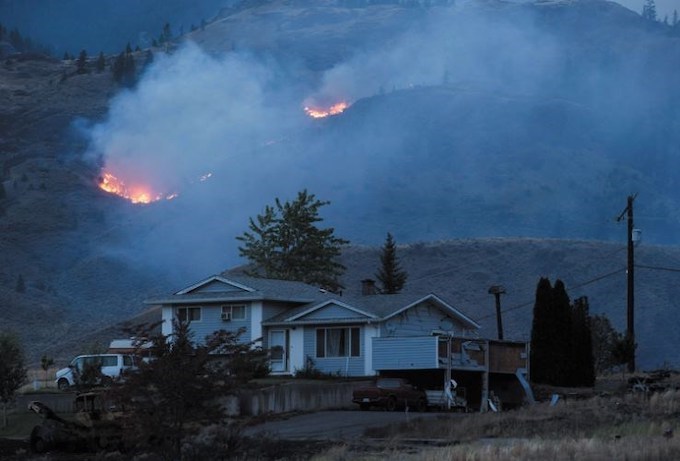Buyers purchasing homes or commercial property in B.C.’s interior where wildfires are raging may find it difficult, if not impossible, to get fire insurance on the property, at least until the smoke dies down,
“It's true, it's an issue” said James Palanio, a real estate broker with Royal LePage in Penticton, who said his office recently met with an insurance representative on the problem.
“It is a hard no for insurance for property in an alert area, an evacuation zone,” Palanio said, but added that fire insurance can be decided on “case-by-case” basis for property within 25 kilometres of an active wildfire, depending on the insurance provider.
“There may be a lake between or other factors,” he said.
Without the insurance, it is impossible to arrange mortgage financing on a home purchase,
Palanio said his office is adding a subject clause to its sales contracts related to delays in getting fire insurance.
“Any home within 25 kilometres of an active wildfire is uninsurable,” said Emma Fraser, an insurance agent with Underwriters Insurance Ltd. in Penticton, even property, she added, that has fire hydrants and a fire department close by.
Fraser said that is the strict policy of the insurance firms she represents. She said agencies with their own underwriters may have some leeway in a case-to-case basis, but she believes it is not likely.
“I have turned down 30 people trying to get insurance on a home purchase,” she said. “Even people who are selling a home and buying another one are affected. I haven’t written a home insurance policy in the last month.”
Meanwhile, the Insurance Bureau of Canada is urging people to get fire insurance and for governments to find ways to reduce risk.
“The time has never been more clear that we do need to build more resiliency and we do need to work together to find a way to reduce or minimize our potential exposure to these threats that we’re facing,” said Rob De Pruis, director of consumer and industry relations with the Insurance Bureau of Canada.
He points out there are no easy answers, but said wildfire policy may need a rethink.
When questioned by Castanet about the cost of insurance for people who live in wildfire zones with no fire department coverage, De Pruis says a lot of factors go into calculating a premium, but said it’s very unlikely you would be fully turned down.
“Fire insurance has been around for hundreds of years, and fire insurance is readily available in B.C. and throughout the rest of the country,” he said.
This is currently not the case in most of B.C.’s interior where wildfires remain active.
Fraser said the current insurance restrictions are temporary and will end with the fire season, though no one knows exactly when that will be.
De Pruis adds, “We need to do better to prepare for wildfires, floods, hail, windstorms. These perils are having just a huge impact on people and property.”
Unfortunately, major natural disasters are becoming all too frequent.
Between 1983 and 2008, the insurance industry was paying out on average about $425 million annually for severe weather costs. Over the past decade, the number has increased 360 percent, to almost $2 billion a year. Six out of the 10 costliest events in Canadian history have been in the last decade.
- With files from Castanet



